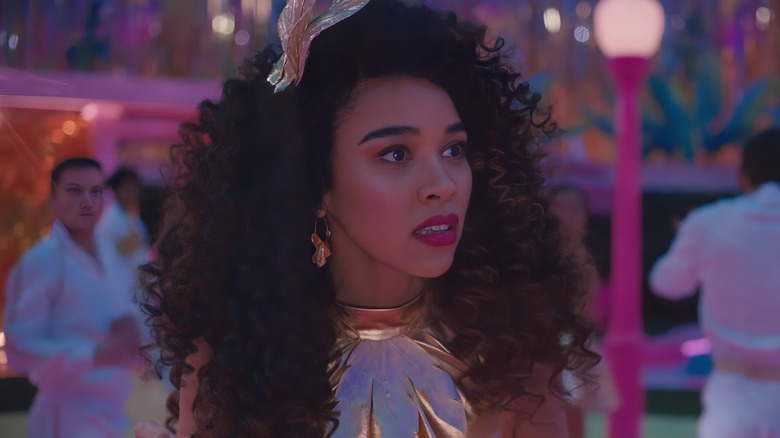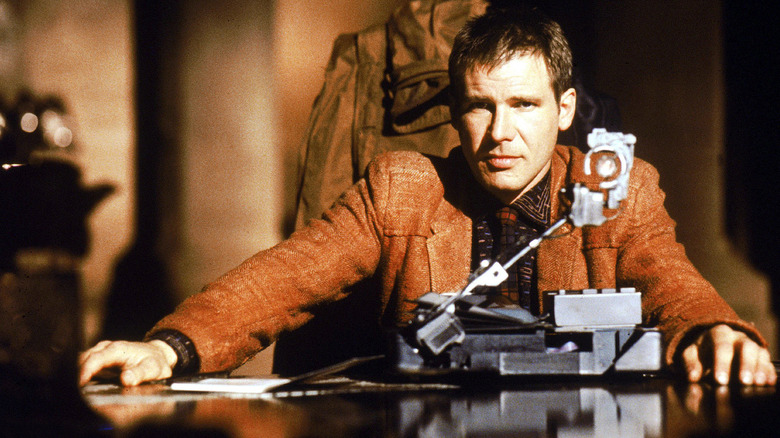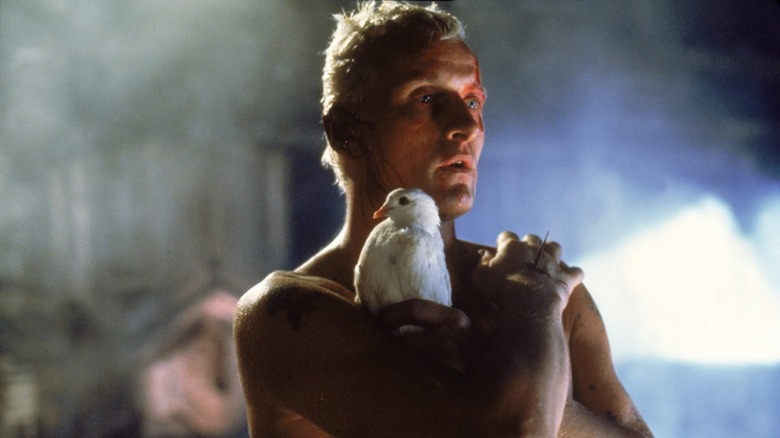Barbie's Snyder Cut Joke Replaced One That Would Have Angered Even More Nerds
In Greta Gerwig's hit film "Barbie," actress Alexandra Shipp plays Writer Barbie, a character who regularly wins Nobel prizes for her work. When Ken (Ryan Gosling) brings word of the patriarchy back from the real world into the Edenic, all-pink world of Barbie dolls, however, Writer Barbie's mind is curiously erased. She, like almost all of the Barbies, has no context for the patriarchy, and cannot resist confident, thick-headed, masculine bluster. She — and many Barbies — briefly become passive, grinning "girlfriends," eager to listen to whatever male-forward blather the Kens of Barbieland feel they need to share.
Eventually, Writer Barbie and the rest of the Barbies are "deprogrammed" by being reminded of the horrendous everyday struggles every human woman needs to survive on a daily basis. When she snaps out of it, Writer Barbie looks back on her time being brainwashed with confusion. How was it, she wonders, that she became so legitimately interested in the Kens' male garbage? "It's like being in a dream," she said, "where I've somehow been really invested in the Zack Snyder cut of 'Justice League.'"
This line, of course, is a delicious dig at the scads of Snyder's film-bro fanboys who launched a bitter, bullying hashtag campaign on Twitter.com insisting that Warner Bros. #ReleaseTheSnyderCut after Snyder initially left production on the 2017 superhero film because of a personal tragedy. No film has been discussed more in recent memory and has been so unworthy of actual discussion.
According to a recent interview with Variety, however, the "making fun of male film-bros" joke wasn't made at the expense of Snyder's fans. Gerwig revealed that the original gag was written to mock people who are really into the alternate cuts of Ridley Scott's 1982 sci-fi film "Blade Runner."
'I liked the voiceover'
Ridley Scott's "Blade Runner" is, of course, the subject of some long-debated editing controversy. Set in the near future of 2019, "Blade Runner" is about a futuristic detective named Rick Deckard (Harrison Ford) who specializes in tracking down rogue replicants, artificially grown human-like creatures built for cheap labor. Detecting replicants is difficult, you see. Replicants are also programmed with pre-set death dates, leading to the replicant Roy (Rutger Hauer) having an existential crisis. Scott's film contains some truly dazzling visuals and production design, but its feints in the direction of profundity fall mind-numbingly flat. Ultimately, "Blade Runner" is a staggeringly dull exercise in meaningless, adolescent navel-gazing.
The film ends with audiences questioning whether or not Deckard is a replicant himself. The answer, either way, wouldn't make "Blade Runner" any more interesting.
When it was first released, however, Warner Bros. notoriously re-edited "Blade Runner," without Scott's input, to include a clunky voice-over narration from Ford, as well as a happier ending. The early voiceover is particularly hated by "Blade Runner" fans, and many popularly criticize it as being unnecessary for communicating the story.
Hatred of the voiceover is such an infamous talking point among film bros — even more so than "Justice League" discussions — that Gerwig just had to initially lampoon it in "Barbie." Instead of Shipp's character being baffled by being really invested in "Zack Snyder's vision," she actually came to the rescue of the theatrical cut of "Blade Runner."
Gerwig said:
"One of the Barbies says to Ken, 'Oh my god, I never would have realized that Deckard was a replicant,' [...] Then when she gets unbrainwashed, there's a version where she said, 'I liked the voiceover. I needed it to help me understand what was happening. Nobody's following this.'"
Zing.
So! Many! Edits!
The Variety article also pointed out that an early draft of "Barbie" included a cameo from Ridley Scott himself, although Gerwig didn't reveal the extent of Scott's intended cameo. Gerwig and her co-screenwriter Noah Baumbach merely assured Variety's readers, however, that the cameo would have been in good fun, and that they are actually fans of the filmmaker's work.
But they were also savvy enough to recognize that discussions about the many edits of "Blade Runner" are about as dull as the movie itself. If one wants to be thorough, one has seven "official" edits of "Blade Runner" they can wade through. From 1982 until 1992, as those of us old enough to remember might recall, fans of "Blade Runner" whispered of an alternate cut, positing that Scott would be allowed to assemble his original vision of the movie, free of narration.
In 1992, "Blade Runner: The Director's Cut" was released in theaters, and it seemed like the matter was settled. This Director's Cut, however, was also compared to a workprint of the film, as well as a sneak preview edit that premiered in San Deigo, and an international edit that was longer than the American edit. Oh yes, and one can also include the TV broadcast edit, if one really wants to be thorough. Already, we're six edits in.
Then, just to muddy the waters further, Scott returned to "Blade Runner" again in 2007 to present "The Final Cut." One might hope this seventh cut will be the final word on the matter.
In a fun coincidence, Ryan Gosling, who played Ken in "Barbie" also played the lead character in Denis Villeneuve's sequel film "Blade Runner 2049." There is, as far as this author knows, no alternate cuts of "2049."


